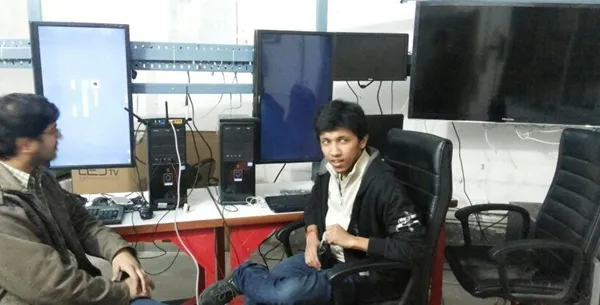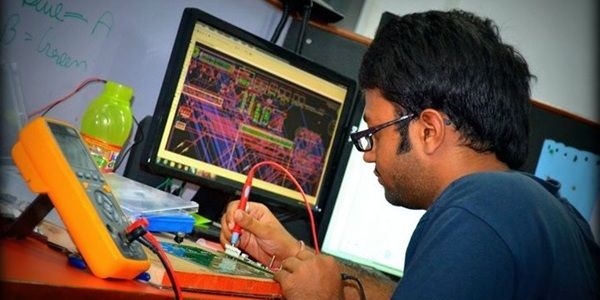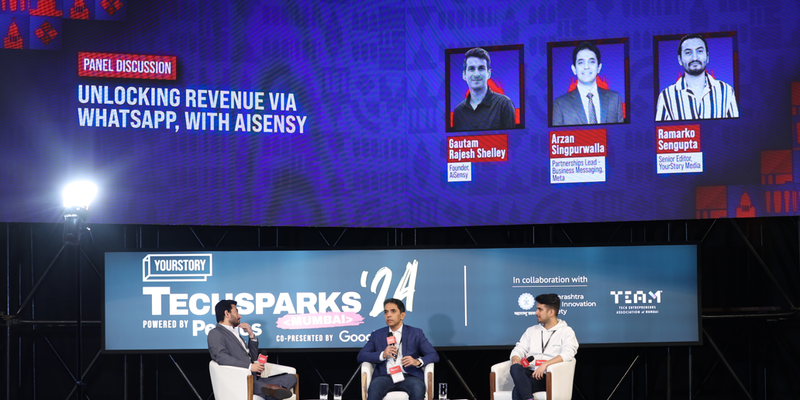Challenges of building a hardware startup team
Being an early member of the team at Grey Orange Robotics (pardon the tardy site, we’re working on it), I am quite proud of the team we have been able to build thus far. Most of our team is between 22-27 years and we have 4 major engineering teams one each in embedded, electronics, server engineering and mechanical. Each of these folks are either:
- Militantly passionate about few specific areas and want to go deep into those.
- Are folks who come with raw intelligence and have convinced us quickly that they are able to pick up the requisite skills

But as we go about expanding the team, we know that it is not going to be easy, and there are going to be challenges that any hardware startup in the country is going to face. Let me share three different real experiences to illustrate this:
Example 1 – Embedded
We need people who are extremely good at embedded systems. We also want them to have some understanding of sensors. Limitation in experience is ok, but we do expect them to have a sound understanding of whatever they might have worked on. But we do notice that even among the ones who have worked in embedded/sensors in MNCs, a very tiny number have an idea about the big picture and where their contribution fits into that, or for example where does their input data which the sensors are analysing come from.
Example 2 - Mechanical
Our mechanical team works on primarily design, rapid prototyping & some manufacturing. Most mechanical engineer’s first job in this country deals with operations, post manufacturing, production management, Quality Control. Finding folks who work on industrial design (from conceptualization to production) and have some basic understanding of materials and manufacturing process is again as rare as it gets.
Example 3 – Electronics/Electrical
Our electronics team works extensively with PCBs and works on circuit design. Not too many young folks end up working in circuit early on in their careers, there is more focus on chip design. It is interesting to see that we see more resumes coming from universities abroad than India when it comes to such profiles.
While these are specific instances, the broader challenges ofcourse have to do with some basic realities that we have noticed:
Some of these, I mention below:
“I’m interested in Robotics!”We receive tons of applicants with this line. The challenge is that robotics could mean pretty much everything from creating a simple line follower robot (or a UAV) to advanced swarm intelligence algorithms (another abused term). Our advice is always to pick a couple of areas that one would like to specialize in within robotics. In India, robotics mostly ends up referring to embedded systems, with not much attention going to things like mechatronics, algorithms, electronics.
Lack of Ecosystem + Community: One doesn’t have a thriving hardware community in India;there’s no iSPIRT or Startup Weekend for hardware;only occasional competitions by big MNCs. Delhi Open Hardware community has I think 30 members in their google group. Neither are there any hardware incubators in India of the sort like Bolt or Haxlr8r. As a result, people interested in hardware are deep inside companies like Texas Instruments, Intel, Apple and need to be reached out to. They might not be necessarily looking out.
Role of infrastructure for developing skills: Getting good at something requires practice and in case of hardware, requires having access to resources and patience. Arduino/RaspeberryPi has to some extent got more people to turn serious hobbyists and start tinkering with hardware. Our advisor Wolfgang keeps reminding us “Get it right the first time”. Within things like manufacturing especially, it definitely helps having people who have done it before. Sure it might cost extra, but it’s definitely worth it.
Communication & Vision: This is something common to every startup that is scaling, but becomes FATAL in a hardware company if not managed right. We agree with Ben Horowitz when he says that an organizational structure’s main aim is seamless communication. One thing which is of importance to us is a person’s communication skills, and the ability to communicate with various other teams. In addition to this, looking at a hardware product from an eagle's view and identifying the right challenges and timelines is also a rare but necessarily skill that we feel is important when we’re evaluating a candidate for a technical role.
Internships: Summers are here and with it comes thousands of applications for summer internships. Oh man, burn. Unfortunately, we learnt the hard way (no pun intended!) that 2-3 month internships simply don’t work at our startup and end up just taking up our current team’s bandwidth, who honestly are already stretched, and after all that learning that has been passed on, the intern just leaves. We offer internships for only 6 months or more and use it more or less as a recruiting tool and expect the person to join us in case there is a mutual fit.

“Hardware is not the new software”, and putting together an ace hardware team requires a considerable amount of dedicated effort. This is more so, if like us at Grey Orange, you are doing something ambitious like creating a fleet of thousands of automatic ground vehicles that will be powering the world’s warehouses and distribution centres.
But despite all the melancholy I have spewed, we’ve had good experiences as well. Of course if you’re working on hardware, or have recruited for your hardware startup, please do reach out to me. We’ll bitch together and drink beer and share each other’s learnings.










![[Funding alert] DeHaat raises $115M in Series D round from Sofina, Lightrock India, Temasek](https://images.yourstory.com/cs/2/98e25df018b511e988ceff9061f4e5e7/Imaged7eg-1611725612304.jpg)
